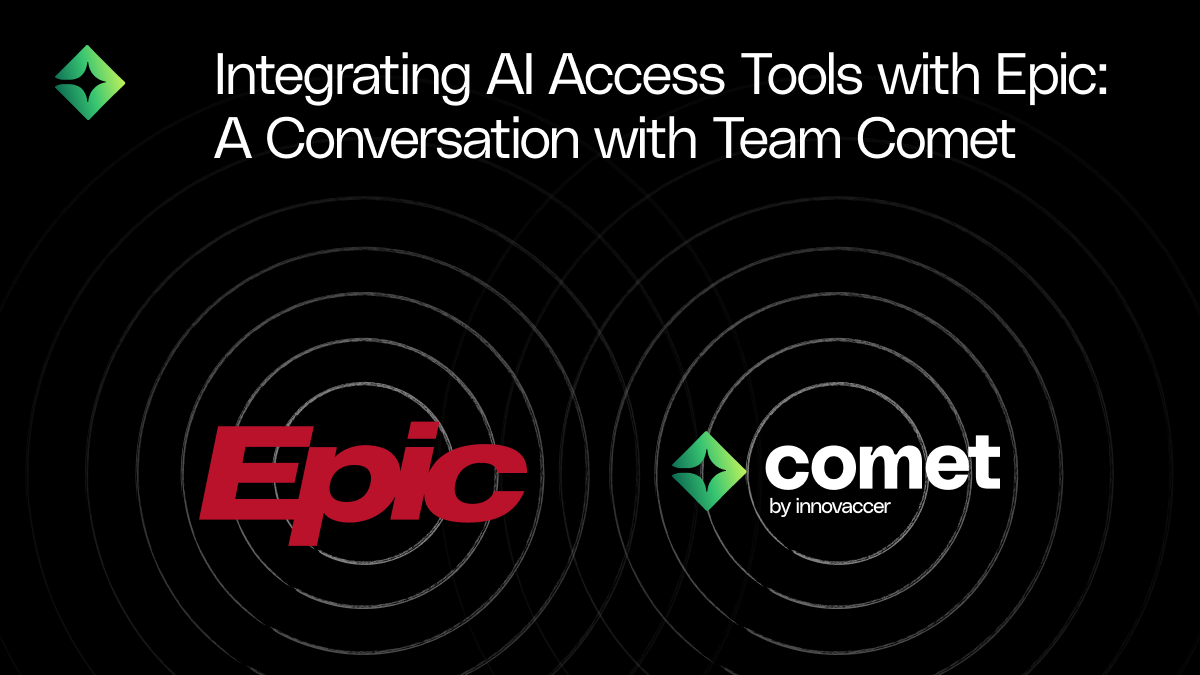What Do Health Systems and Hospitals Need to Know Before Onboarding an AI Vendor?


Artificial Intelligence (AI) has already shown the potential to substantially improve healthcare efficiencies and outcomes, from everything including clinical support to administrative operations. Before committing to an AI vendor, healthcare organizations need to assess their readiness to onboard one into their existing operations. They must obtain clarity on their needs, a thoughtful approach to choosing partners, and a realistic plan for implementation and measurement of success. The upfront work might seem overwhelming at first, but this will be a prime distinguishing factor between impactful innovation and expensive frustration.
The right vendor brings deep healthcare experience, respects your clinical environment, and works collaboratively to integrate their solution seamlessly into any healthcare system. On the contrary, the wrong vendor can create integration issues, jeopardize patient trust, and waste valuable resources. Choosing the right partner isn’t just about procurement, it is a long-term strategic alignment.
.png)
Defining Your AI Needs And Priorities
Before starting with the vendor evaluation process, organizations need to take a step back and introspect about their current challenges. Pinpointing challenges such as the problems the hospital is trying to solve, burnout-induced attrition rates, inefficiencies in scheduling, gaps in care coordination, and documentation backlogs can help avoid the trap of adopting AI for AI’s sake.
It is also essential to include the feedback from real-time users, such as clinicians, IT staff, front desk, and billing teams. They bring real-world insights focusing on essential features needed and what workflows are impacted. It would also determine the actual usability and usefulness of the modern systems.
These conversations would help organizations in setting clear priorities with a distinction between negotiable and non-negotiable capabilities, keeping vendor search focused and efficient.
Asking The Right Questions To Potential Vendors
The quality of questions for potential AI vendors can make or break your decision. Organizations need to ask the right questions to the vendors on the following parameters:
- Organizations need to start by assessing the vendor’s healthcare experience. Experience with hospitals and an understanding of the regulatory and ethical environment of clinical care are important criteria for assessment of potential vendors.
- Interoperability should also be a key concern because any system needs to work seamlessly within the organization’s ecosystem. The product should clearly define the level of integration capabilities with Electronic Health Records or existing IT infrastructure of the hospitals, with any extra technical assistance needed.
- The vendors should provide full transparency on how their AI makes decisions, with a comprehensive explanation of their model’s outputs and the provision to audit and challenge its decisions.
- Organizations should know every information about data governance, including where the data is stored, who has access to the data, whether it will be used for training other models, and whether the software is HIPAA compliant.
- Organizations should also explore the options of having AI agents and copilots within the solution to perform tasks on command, such as responding to clinical prompts, generating summaries and relevant patient data, and assisting with administrative work.
- The vendor should specify the range of in-depth insights the software will deliver. It should also provide transparency about the level of capabilities to extract context from complex unstructured data, providing meaningful insights from raw data that clinicians can trust and act on.
Also Read: The Ultimate AI Vendor Checklist for Healthcare Leaders
Enabling A Successful Implementation
Even the most impressive AI tool can fail without a smart rollout plan. Successful implementation involves multiple resources - people, training, process changes, and patience. Proper ongoing training should be provided to the staff and customized according to their roles. There should be a clear plan for onboarding, feedback loops, and issue resolution.
Timelines for the execution of the software also matter. Organizations need to set realistic timelines for deployment and testing, with adequate budgeting for maintenance, support, upgrades, and internal resources. Rushed implementations often lead to poor adoption and underwhelming results.
Additionally, organizations must decide early on the metrics based on which the software’s performance needs to be assessed. The metrics should have elements that matter to the organization, and regular tracking will ensure that the software lives up to its expectations.
Protecting Your Organization
The organization’s relationship with its vendor goes beyond technical aspects. It covers legal, financial, and strategic parameters, all of which require close scrutiny. There should be clear provisions to protect the organization, such as performance guarantees, clear service-level agreements, and terms for ending the partnership if needed.
Organizations should also establish the processes for an ongoing vendor evaluation, with built-in checkpoints to reassess performance, value, and alignment with their goals. Most importantly, they should develop their own AI literacy through training, hiring, or partnerships, so that the organization doesn’t have to be fully dependent on the software, and eventually becomes smarter, savvier, and more self-reliant over time.
Building Successful AI Partnerships
Onboarding an AI solution isn’t about acquiring new technology, it is about reshaping how your organization works, thinks, and delivers care. Organizations need to identify vendors who want to grow and enable better care with them, instead of just replacing manual processes with automation. This means being open to feedback, adapting to your workflows, and keeping the focus on patient outcomes.
Approaching vendors as partners, rather than just providers, sets the tone for shared success. Innovaccer’s solutions are well equipped to help your healthcare teams do their jobs better and provide quality care to your patients. Know more about the solutions’ capabilities and book your demo today.


.png)



.png)



.avif)









.svg)
.svg)

.svg)

